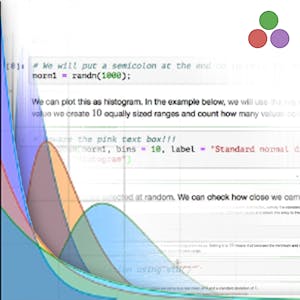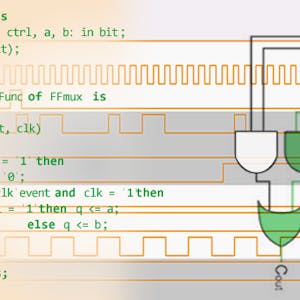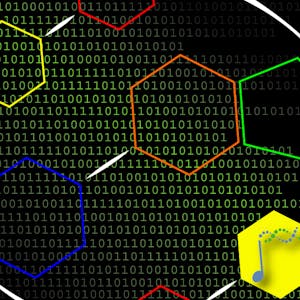Julia Scientific Programming
About this Course
This course introduces you to Julia as a first programming language. Julia is a high-level, high-performance dynamic programming language developed specifically for scientific computing. This language will be particularly useful for applications in physics, chemistry, astronomy, engineering, data science, bioinformatics, and many more. You can start programming with Julia within Coursera and it can also be used from the command line, program files, or a Jupyter notebook. Julia is designed to address the requirements of high-performance numerical and scientific computing while being effective for general-purpose programming. You will be able to access all the available processors and memory, scrape data from anywhere on the web, and have it always accessible through any device you care to use as long as it has a browser. Join us to discover new computing possibilities. Let\'s get started on learning Julia. By the end of the course you will be able to: - Programme using the Julia language by practicing through assignments - Write your own simple Julia programs from scratch - Understand the advantages and capacities of Julia as a computing language - Work in Jupyter notebooks using the Julia language - Use various Julia packages such as Plots, DataFrames and Stats The course is delivered through video lectures, on-screen demonstrations, quizzes, and practical peer-reviewed projects designed to give you an opportunity to work with the packages.Created by: University of Cape Town

Related Online Courses
This course is designed for novice learners wanting to understand the basics of ISO and IEC security standards. Learners will gain understanding how security standards address the challenges facing... more
This is a self-paced lab that takes place in the Google Cloud console. In this lab you will learn how to use Dialogflow tools to troubleshoot your Virtual Agent.Created by: Google Cloud more
This course gives you a complete insight into the modern design of digital systems fundamentals from an eminently practical point of view. Unlike other more \"classic\" digital circuits courses,... more
In this course you can learn about the mechanics of global weather, the foundations of ocean meteorology, predictive modeling and how sailors receive data via satellite and use high-performance... more
Learn to use tools from the Bioconductor project to perform analysis of genomic data. This is the fifth course in the Genomic Big Data Specialization from Johns Hopkins University.Created by: Johns... more







